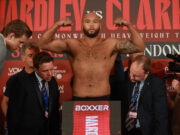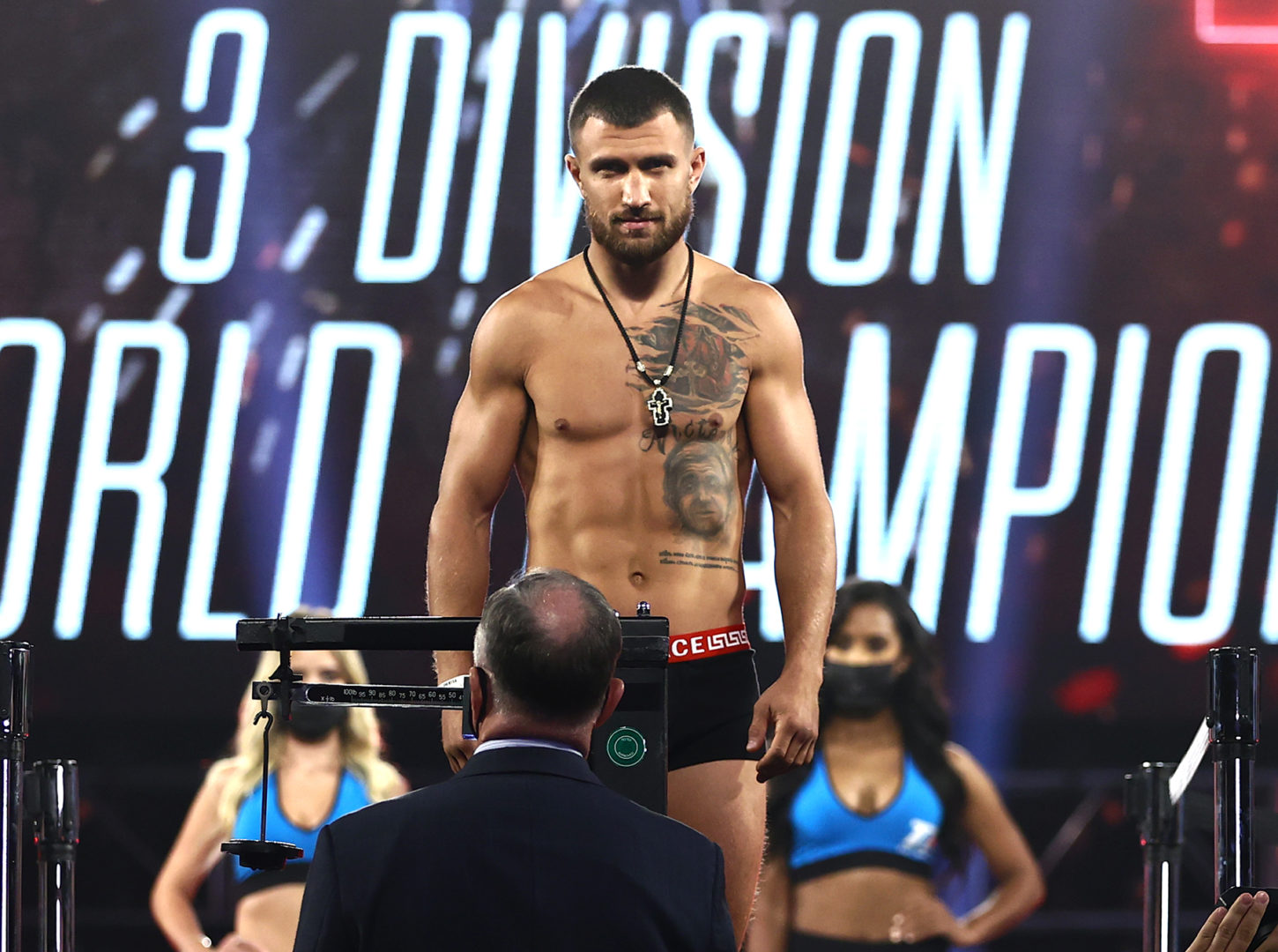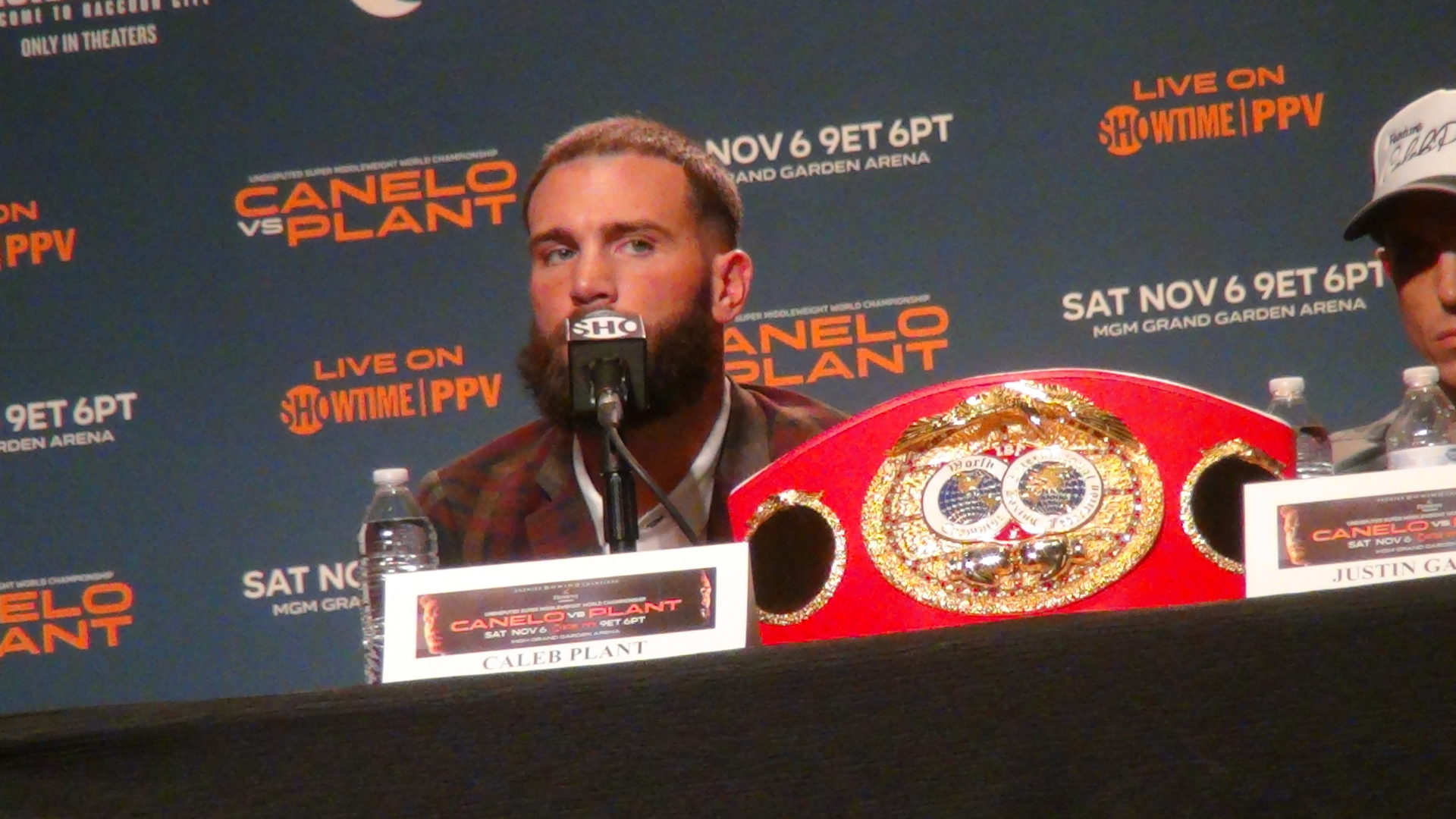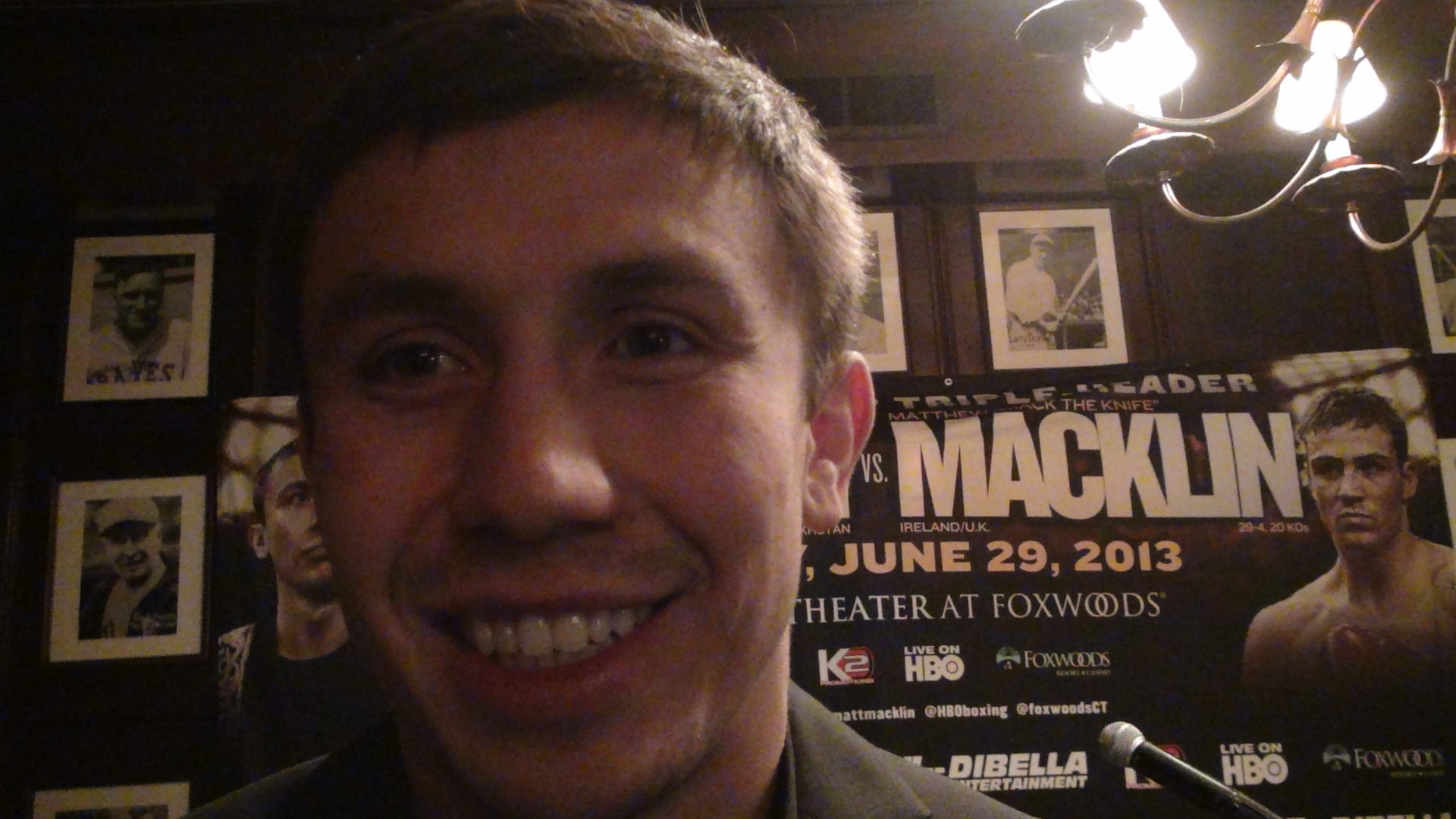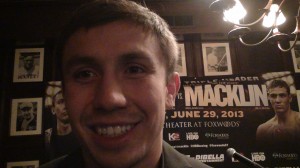
GGG is an acronym still searching for some definition. Gennady Gennadyevich Golovkin has an unbeaten record, boxing’s best knockout ratio, Olympic silver, a good back story and a friendly, somewhat enigmatic smile that seems to say: What, me worry?
What he doesn’t have, however, is a defining fight that stands as a milestone on a career path that many believe is unlimited. An HBO-televised bout Saturday against Matthew Macklin (29-4, 20 KOs) is being sold as one that might provide a look at the substance to the advertised potential in Golovkin (26-0, 23 KOs), whose familiar initials adorn his trunks as if they are there to identify a fighter going global.
Golovkin’s passport and resume are stamped world-class. His 2004 Olympic medal for Kazakhstan, his home and family in Germany, his move into the American market, his piece of the middleweight belt and HBO’s interest in him say it many languages all with the same interpretation.
There’s nowhere Golovkin won’t go. And there’s no one he won’t fight.
Yet, the second part of that equation looked problematic about a year ago. Rival promoters and managers looked at him and saw a party crasher. They said they didn’t know who he was. They complained he was unknown to most of the customers. But, truth is, they had seen enough to know that Golovkin’s sudden arrival could alter their plans to cash in. Sergio Martinez promoter Lou DiBella, Macklin’s promoter, reacted to any mention of Golovkin’s name as if it were day-old goulash not long after Martinez’ victory over Julio Cesar Chavez, Jr., in September.
It was DiBella’s way of saying: Let him pay his dues. Martinez paid them in full and perhaps at a price that has brought him to the end of his brilliant career. He suffered injuries in his victory over Chavez and was injured again in a narrow escape in the rain against Martin Murray in Argentina.
But boxing isn’t baseball. There’s no unwritten rule that a promising talent has to spend time in the minors. The guess here is that Golovkin, a little bit like Los Angeles Dodgers rookie Yasiel Puig, has been ready for the big time for a while.
For Golovkin, the good news is that he seems to have taken an important step in perception. If not an equal to Martinez, his name is being dropped as a worthy challenger. There’s been little argument. Macklin could change that with one big punch.
In part, that danger might put pressure on Golovkin. A misstep against Macklin would be a severe setback just at the point when Golovkin’s career is poised to move onto the big stage. The guess in this corner is that Golovkin will prevail with patience and a brand of power that Macklin has yet to experience.
If styles make fights, this one fits Golovkin like a well-worn victory. Macklin brawls, almost by instinct. At some point, that habit will put him within range of power that accounts for Golovkin’s ability to a stop 88.4 percent of his opponents. It would be interesting to see how Golovkin reacts if rocked by Macklin. But don’t be surprised if that doesn’t happen. Golovkin’s knockout percentage masks boxing ability acquired during his long amateur career. He beat Andy Lee and Lucian Bute at the 2003 World Championships. He beat Andre Dirrell at the Athens Olympics. He learned the craft in a lot of places and a lot ways, all impossible to ignore. Will it lead to a showdown with a vulnerable Martinez or a Chavez Jr. trying to resurrect a battered image?
Maybe, although super-middleweight Andre Ward could enter the picture depending on what happens with promoter Dan Goossen. Ward and Goossen went through arbitration, reportedly because Ward wants out of his contract. If Ward breaks from Goossen and signs with Top Rank’s Bob Arum, Ward is one step closer to getting a fight against Chavez Jr. A victory over Chavez would enhance his marketability with Mexican fans, the key demographic in the boxing market.
There are still a lot of moves to be made. But on boxing’s chessboard, Golovkin is finally a major piece. Against Macklin, Golovkin is in a fight to remain one. That makes it a significant bout, if not a dangerous one.
AZ Notes
Floyd Mayweather Jr. and Canelo Alvarez are in Phoenix Tuesday on a 11-city tour for their Sept. 14 fight at Las Vegas’ MGM Grand in a stop that looms as a test of an Arizona market abandoned by major promoters after the 2010 immigration controversy involving SB 1070.
Golden Boy, which is staging the national tour, left the state after a long, successful series of bouts at Desert Diamond Casino south of Tucson. Despite vanishing cards, however, the state’s pay-per-view sales stayed strong, according to sources aligned to promoters and television. The turnout for Tuesday’s tour stop is another test of whether it’s time to re-enter the market.
Tuesday’s tour stop is scheduled for the Herberger Theater at 222 East Monroe Street in downtown Phoenix. Mayweather and Alvarez are scheduled to meet the fans at 11 a.m.


